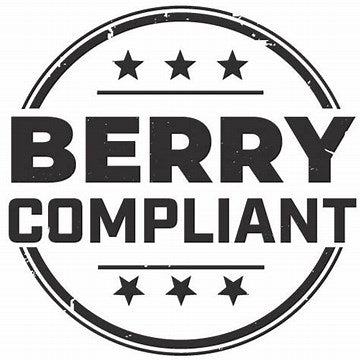
Understanding the Difference Between TAA and Berry Compliance
Share
When sourcing products for government contracts or military use, compliance with regulations is crucial. Two common standards that often come up are TAA (Trade Agreements Act) compliance and Berry compliance. While both involve restrictions on sourcing materials and manufacturing, they serve different purposes and apply to different types of contracts. Understanding these differences is essential for businesses looking to enter government procurement.
What is TAA Compliance?
The Trade Agreements Act (TAA), established in 1979, ensures that the U.S. government only purchases products that are either:
-
Made in the U.S.
-
Substantially transformed in a designated country (countries that have a trade agreement with the U.S.)
Key Points About TAA Compliance:
-
TAA applies to products sold under GSA (General Services Administration) contracts and other government procurement agreements.
-
Countries like Canada, Germany, and Japan are TAA-compliant, while countries like China and Russia are not.
-
The requirement focuses on the origin of the final substantial transformation rather than where individual components come from.
What is Berry Compliance?
The Berry Amendment, passed in 1941, is a stricter regulation aimed at ensuring that certain U.S. military purchases are 100% domestically sourced. This law requires that textiles, clothing, footwear, and food products purchased by the Department of Defense (DoD) be made entirely in the United States.
Key Points About Berry Compliance:
-
It applies only to the Department of Defense and its contracts.
-
The law covers items like military uniforms, boots, body armor, and textiles.
-
All manufacturing and materials must originate in the U.S., with very few exceptions.
-
The Berry Amendment is stricter than TAA compliance because it does not allow for foreign components or assembly.
TAA vs. Berry Compliance: A Quick Comparison
| Feature | TAA Compliance | Berry Compliance |
|---|---|---|
| Applies to | GSA contracts, federal procurement | Department of Defense contracts |
| Key Requirement | Final product must be made in the U.S. or a TAA-designated country | Entire product (materials and manufacturing) must be U.S.-based |
| Countries Allowed | U.S. and designated trade agreement countries | Only the United States |
| Product Scope | Broad (electronics, tools, medical equipment, etc.) | Limited (textiles, clothing, food, footwear) |
| Exceptions | Substantial transformation in a TAA-compliant country is allowed | Few exceptions, strictly U.S.-made |
Which Compliance Standard Do You Need?
-
If you are selling general products under a GSA contract, you need TAA compliance.
-
If you are providing textiles, clothing, or food for the DoD, you need Berry compliance.
-
Some military contracts require both, meaning products must be fully U.S.-made and sourced from TAA-compliant countries.
Final Thoughts
Understanding whether your product needs TAA or Berry compliance can be the difference between securing a government contract and facing disqualification. Ensuring your supply chain meets the necessary standards is essential for doing business with the U.S. government and military.
If your business needs guidance on sourcing TAA or Berry-compliant products, working with a knowledgeable supplier can help you navigate these requirements efficiently.
